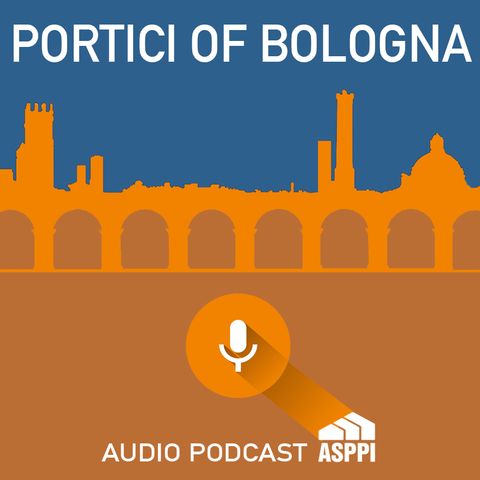Portici of Bologna. The portico of the Certosa (English)

Download and listen anywhere
Download your favorite episodes and enjoy them, wherever you are! Sign up or log in now to access offline listening.
Description
The portico of the Certosa . The portico is a covered passage starting from Via Saragozza, just before the Arco del Meloncello and ending at the Certosa cemetery using for...
show moreIt was planned by local architect Ercole Gasparini who encountered many difficulties in planning the portico, which was completed in 1834, after his death, with changes and simplifications to his original project. The architect also planned and supervised the first transformations of the old monastery of the Certosa into a monumental cemetery and two of his major works include the Monumental Entrance and the Chapel of the Intercession (Cappella del Suffragio).
Construction began in 1811 financed also by the enthusiastic citizens who made many donations. This building project was also seen a way of giving work to many labourers unemployed by years of economic crisis. Initially the architect sees the covered way as an extension of the cemetery with burial chambers in each archway and with more elegant chapels in the 18 head arches planned as bigger areas and evidenced in their decoration by pediments. This idea was a first in Europe, the plan being to try and recreate the ancient Roman funerary streets where tombs and mausoleums were on the sides of the road leading to the city.
The gallery was meant to redefine the perimeter of the main cloister area of the old monastery by continuing inside the cemetery and here connecting to the Chapel of the Intercession (Cappella del Suffragio) the new focal point of the complex.
Gasperini dies in 1829 before he could finish his work and new and simpler projects will be designed by his successor, engineer Luigi Marchesini.
In 1831 the arch on Via Saragozza is finished, as are 131 arches. The portico at that time went over the Sant'Isaia road to Casaleggio via the Guidi arch - demolished in 1934 to ease traffic, and over the Reno canal with a covered bridge, planned as monumental by Gasperini but simplified by Marchesini to an Ionic colonnade, which is what we still see today. The portico then joins the Certosa cemetery walls. Thanks to a generous bequest by economist Luigi Valeriani, the works will be finished by Marchesini in 1834, with the arches of the Certosa portico reaching the number of 220.
The portico becomes part of the city's history when in 1849 near arch 67, the Austrian troops execute Ugo Bassi and Giovanni Livraghi, two symbols of the Italian Risorgimento.
Changes took place with the building of the new Stadium dell'Ara and some of the arches had to be demolished to make room for the monumental entrance and the tower called the "Torre del Littorio". During WWII the arches closest to the stadium were adapted into apartments for those who had lost their homes in the bombings. Every archway facing the street was sealed by a wall and became a small studio: a total of 94 families found a temporary home in what was called the "Maratona condominium" by Italian writer and journalist Luca Goldoni.
By Antonella Merletto Architectural historian and Official Tour Guide.
Antonella has a degree in Architecture, a post-degree specialization in Ancient Greek and Roman Architecture and a PhD in Ancient Architecture. Antonella is British-Italian and is bilingual. She teaches History of Art, History of Architecture and Archaeology in various American Universities in Rome and is an Official Tour Guide.
Information
| Author | ASPPI |
| Organization | ASPPI |
| Website | - |
| Tags |
Copyright 2024 - Spreaker Inc. an iHeartMedia Company

Comments